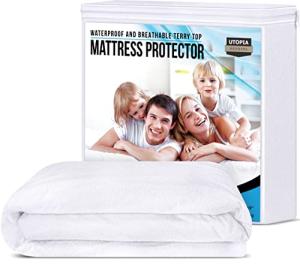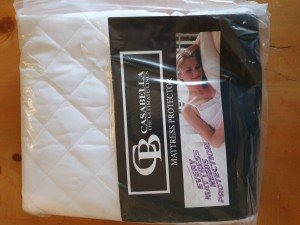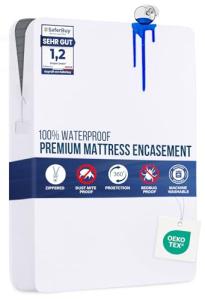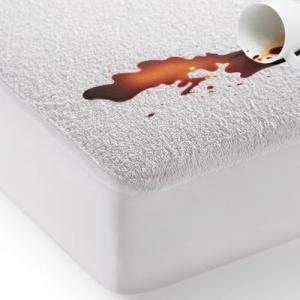In the modern world, where comfort meets health consciousness, incorporating products that ensure both can enhance the quality of sleep, especially in shared spaces like bunk beds. With growing awareness regarding allergies and the importance of maintaining a clean sleeping environment, the anti-allergy waterproof mattress protector has emerged as an indispensable accessory for bunk beds. This guide delves into the various benefits, features, and considerations surrounding these protectors.
What is an Anti-Allergy Waterproof Mattress Protector?
An anti-allergy waterproof mattress protector is a specialized cover designed to encase a mattress. Its primary functions are twofold: to provide a waterproof barrier against spills, and to protect against allergens such as dust mites, mold, and pet dander. Unlike traditional mattress covers, these protectors combine waterproofing techniques with allergen-resistant materials, making them especially crucial for bunk beds shared by children or adults with allergies.
Key Features of Anti-Allergy Waterproof Mattress Protectors
-
Waterproof Barrier:
- Protects against spills and accidents.
- Prevents moisture from penetrating the mattress, thus reducing the risk of mold and mildew growth.
-
Allergen Resistance:
- Formulated to block dust mites, bacteria, and other allergens.
- Provides a healthier sleeping environment, especially for allergy sufferers.
-
Breathability:
- Designed with breathable materials that allow air circulation.
- Ensures comfort by maintaining an ideal sleep temperature.
-
Easy Maintenance:
- Machine washable for easy cleaning and convenience.
- Durable against regular wash cycles, maintaining protective qualities over time.
-
Fitted Design:
- Easily fits bunk bed mattresses with different depths.
- Reduces movement, preventing the cover from shifting during use.
-
Safety Features:
- Non-toxic materials safe for children and pets.
- Eliminates the risk of contaminants infiltrating the mattress.
Benefits of Using an Anti-Allergy Waterproof Mattress Protector
Utilizing an anti-allergy waterproof mattress protector offers multiple advantages, especially for bunk beds frequently used by children and guests. Such benefits include:
- Improved Hygiene: The protector prevents the accumulation of allergens, enhancing the overall cleanliness of the sleeping environment.
- Longevity of Mattress: Protecting the mattress from spills and allergens can extend its lifespan by keeping it in good condition for longer.
- Healthier Sleep: A cleaner, allergen-free mattress leads to improved sleep quality, reducing nighttime awakenings due to allergy symptoms.
- Ease of Mind: Parents and caretakers can rest easy knowing their children are sleeping on a protected surface, free from potential irritants.
Choosing the Right Anti-Allergy Waterproof Mattress Protector
When shopping for a mattress protector specifically for bunk beds, several factors should be considered to ensure an informed choice:
-
Material Quality:
- Opt for high-quality materials that provide both comfort and protection.
- Look for certified hypoallergenic options to guarantee minimal exposure to allergens.
-
Fit and Size:
- Ensure the protector is designed explicitly for the size of the bunk bed mattress (twin, twin XL, etc.).
- Check for elasticized corners for a secure fit that prevents movement during use.
-
Ease of Cleaning:
- Select protectors that are machine washable and easy to dry.
- Some protectors may require specific care instructions; always read the labels.
-
Warranty and Guarantee:
- Many reputable brands offer warranties on their products, ensuring satisfaction and product quality.
Maintenance Tips for Mattress Protectors
To maximize the lifespan and effectiveness of your anti-allergy waterproof mattress protector, consider these maintenance tips:
- Regular Cleaning: Wash the mattress protector as frequently as possible, at least once a month. This prevents the accumulation of dust mites and other allergens.
- Spot Cleaning: For spills or stains, immediately spot clean with mild soap and water to prevent further staining or damage.
- Dry Properly: Ensure the protector is dried completely after washing to prevent mold growth. Follow the manufacturer's instructions regarding drying methods.
FAQs About Anti-Allergy Waterproof Mattress Protectors
Q1: How often should I wash my mattress protector?
A1: It is advisable to wash your mattress protector at least once a month, or more frequently if there are spills or allergies.
Q2: Can I use an anti-allergy mattress protector on any mattress?
A2: Yes, as long as the size is appropriate (twin, twin XL, etc.), these protectors can be used on various types of mattresses.
Q3: Do mattress protectors make noise when I move?
A3: Most modern mattress protectors are designed to be quiet. Look for options labeled as "soft," "quiet," or "breathable" to minimize noise.
Q4: Are they safe for kids?
A4: Yes, anti-allergy waterproof mattress protectors made from non-toxic materials are safe for children and will not pose any health risks.
Q5: Will a mattress protector change the feel of my mattress?
A5: A high-quality mattress protector should not significantly affect the feel of your mattress. It may even add an extra layer of comfort.
An anti-allergy waterproof mattress protector for bunk beds is an essential investment for those seeking to maintain a clean and healthy sleeping environment. From supporting allergy sufferers to prolonging mattress life, the benefits are plentiful. By understanding the features, selecting the right product, and maintaining it properly, bunk beds can transform into havens of restful sleep for all users, ensuring that everyone enjoys the comfort they deserve.






